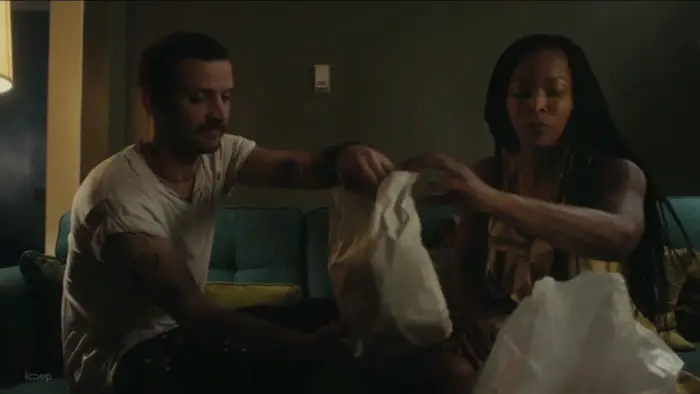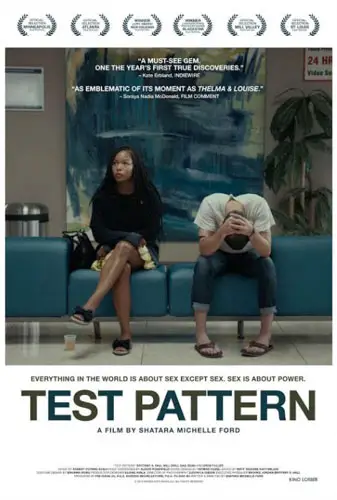
Some people like to live their fantasies through the magic of the cinema, while others consider it a conduit for the fulfillment of artistic visions. And some watch movies to experience life and all of its strangeness from another perspective. Test Pattern, written and directed by Shatara Michelle Ford, is made for the latter group.
Renesha (Brittany S. Hall) has a happy life with her tattoo artist boyfriend, Evan (Will Brill). During a girl’s night out, she and her friend are approached by two men. At first, everything seems normal, but after a few drinks and some drug use, the situation gets out of hand, and Renesha wakes up in one of the two men’s bed. Confused and scared, she tries to figure out what happened. Unfortunately, this question has a bitter answer.
Test Pattern is one of the most realistic takes on the subject of rape ever. Renesha and Evan are not heroes or villains. They are normal people that we may meet during our daily routines. There’s no imaginary line separating the good from the bad. The man who rapes Renesha is not a psychopath. When he sees her confusion and fear, he calmly talks to her and even drives Renesha to her friend’s house, who, unlike Renesha, is not harmed by the other man. That’s important because it shows even the nice guy next door might be a rapist if he finds the chance.
Renesha is not some innocent teenage girl who’s kidnapped on her way to school either. As an adult woman, especially considering her ethnic background, African-American, she knows how dangerous it might be to trust two white men with their drinks and drugs. That’s perhaps one of the reasons she’s feeling guilty and doesn’t want to go to the police.

“…after a few drinks and some drug use…Renesha wakes up in one of the two men’s bed.”
Throughout Test Pattern, Ford brilliantly paints a sad but realistic picture of rape which correlates with RAINN statistics claiming that less than 5% of reported rapes eventually lead to a felony conviction. Thanks to Hall’s touching performance, the audience gets as close as possible to exploring the pains caused by such a tragic event. Renesha goes through every stage of the trauma in a way that transcends words. She is confused at first, trying to remember what happened.
She then enters a denial phase, claiming she isn’t sure about the night’s events, followed by regret when she repeatedly goes over the incident in her head. Finally comes the acceptance and moving forward when she bursts into tears in the bathtub and cuts her hair. Most of those emotions are portrayed without her saying a single word. Hall does her job so brilliantly that even without dialogue, viewers fully understand each realization and emotional moment.
The chemistry between Renesha and Evan is also worth noting. Brill acts as the supporting significant other and, at the same time, lets his emotions get the best of him. He never points fingers at Renesha or bombards her with questions which is a blessing that many real-life rape victims never get to have. But he is not perfect either and puts Renesha under tremendous physical and mental pressure on their desperate journey to find professional help. That imperfection is one of the main features that makes Evan a person to connect with rather than a character from a film.
Test Pattern is not a story; it’s a report. That’s how believable Ford narrates the story. She is not perfect either since she sometimes injects fake drama into the narrative, like stretching a simple hospital reception procedure into a tedious 5 minutes slow-motion sequence. Nevertheless, the radiant performances and intense emotional eruptions make it a must-see for those who love thrillers.

"…one of the most realistic takes on the subject of rape."


